At Stride, our goal is to give travelers the resources they need to make informed decisions about which packages are best for them.
We love animals at Travelstride. For us and many other people, interacting with wild and domesticated animals can be a huge part of the appeal of travel to that destination. Safaris, Amazon Rainforest tours, tours in the Galapagos, or to the Great Barrier reef - just to name a few global hotspots - are all popular destinations where seeing wild creatures in their natural habitat is a key attraction.
In today's world however, the effect of travel on the welfare of wild animals and landscapes is a very real and serious issue. While it might feel cool to pose with a tiger or ride an elephant, it's important to be aware of the consequences and sometimes hidden repercussions surrounding these experiences.
Many tour companies talk about being responsible, and most really mean it. Of course for complex, moral issues, there’s no simple clear ‘right’ answer. To help you, ethical traveler, better understand the impact of your choice, we asked top bloggers’ to share their takes on what to consider when selecting experiences involving animals:
1. Tiger Temples

Alternative to Consider: Wildlife sanctuaries. India nature reserves, where a safari brings you close but not too close to wild tigers.
2. Elephant Rides
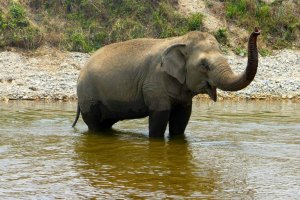
Some activists have pointed out that the training process to make elephants ridable can be traumatic and harmful depending on the tactics used. Some activists also express concerns about the strain of carrying passengers on an elephants health. Be careful when selecting an operator providing this activitiy.
Alternatives to Consider: Volunteer at an elephant sanctuary such as Elephant Nature Park in Chiang Mai, where elephants are rescued from use in the tourism industry and are rehabilitated - many become healthy enough to be re-released into the wild.
photo: Madeleine Deaton, Flickr
3. Lion Walking
“Lion Walking” - literally walking amongst lion territory, away from the safety of a safari jeep, might be a great way to impress your friends, but it can have a terrible side effect. Some lion walking tours may be a front for "training" lions to get used to human behavior thus becoming easier targets for hunters.
Alternative to Consider: A regular safari led by wildlife experts, which allows you to observe the animals behaving naturally in their habitat.
4. Civet Coffee Plantations
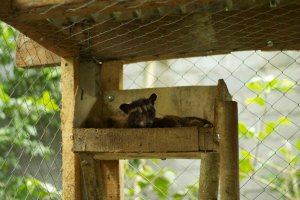
Alternative to Consider: Avoid these plantations, choosing instead to support coffee operations that do not produce Civet Coffee. There are also Civet sanctuaries you can visit.
photo: mckaysavage, Flickr
5. Shark Cage Diving
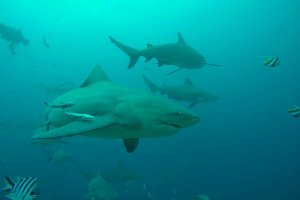
Another adrenaline rush for humans becomes a confusing and harmful exercise for the shark. And many believe it perpetuates harmful steryotypes about sharks.
However, some companies have used this experience to be educational - teaching us of sharks vital role in the ocean ecosystem. Using an operator that uses minimal "chumming" tactics is usually a good indicator that it is a responsible operation.
Alternative to Consider: Become a part of the environment in a less disruptive way on a regular scuba diving trip or a low imapct cage diving operator.
photo: amanderson, Flickr
6. Swimming With Dolphins

Alternative to Consider: Dolphins can very often be seen on whale watching trips, where you'll have access to binoculars for obvservation and eductional information. This is a great way to learn about these incredible and intelligent animals.
7. Circuses, Zoos, & Theme Parks
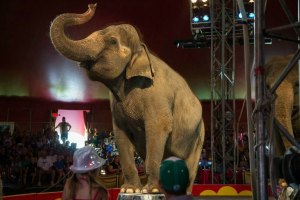
Alternative to Consider: Seek out circuses without animal performers. Do your research about local animal shows or theme parks, and if in doubt don't go.
photo: Alex Krasavtsev, Flickr
Top bloggers weigh in on the above experiences:
We asked top bloggers’ to share their takes on what to consider when selecting experiences involving animals:

“Most people who take part in [experiences that hurt] animals when travelling, be that riding an elephant, posing for a photo with a fully grown tiger or volunteering in a lion cub orphanage, do so without realising that they are supporting businesses that abuse these animals.
In all likelihood the elephant they are riding (an endangered species in both Africa and Asia) has been taken from the wild and subjected to cruelty in order to train it.The tigers will have been drugged in order to keep them docile enough for tourists to pet them and even if the tigers in question are just cubs, once their petting days are over, they are used in the tiger bone business.
While the lion cubs, having grown used to humans (which makes them easier to hunt), are sent to trophy hunting farms. If we stop the petting, the killing will stop too."
- Kathryn Burrington, Travel With Kat
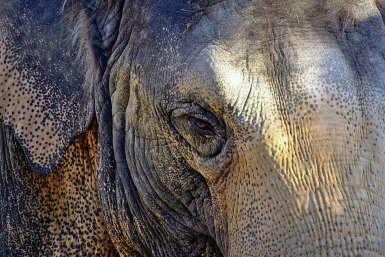
Elephants are beautiful creatures. For years visiting and riding these majestic, intelligent beings has been a popular tourist attraction. However, unbeknownst to many travelers, the act of riding elephants has a dark underbelly.
"As a lifelong Elephant lover; when I first traveled to Asia in 2006 I was thrilled at the idea of being able to touch and ride one. Unfortunately, I learned the hard way—like many others—that close encounters between tourists and wild animals are not what nature intended.
It wasn’t until years later that I discovered the extent of mistreatment, cruelty and abuse that an Elephant endures before his ‘spirit’ is ‘broken’ and he will accept human domination. These majestic creatures were born to be wild and not for our entertainment, a fact that much of humanity has chosen to ignore over the last centuries.
Today, there is an abundance of Elephant-related tourism attractions, particularly in South East Asia. At worst these directly abuse and cause suffering to these animals, at best they encourage the keeping of elephants in captivity when they should be kept wild.
My advice to myself and others: be extremely skeptical of Elephant “orphanages”, “sanctuaries” and “rescue centers” as often these types of places are set up to make money from tourism as opposed to protecting the wildlife.
If you feel called to help the plight of these wonderful creatures, there are many charities that you can donate financially to fund their excellent conservation work and fight against poaching. This is often the best way of helping, as those working with Elephants need specialist skills and training (which we do not have)."
- Ellie Cleary, Soul Travel Blog

You may not think that coffee production affects animal welfare, but that’s exactly what Ivana & Gianni, bloggers behind Nomad is Beautiful, discovered on a journey through Southeast Asia.
"When in Bali, Thailand, Vietnam, or the Philippines, you might be tempted to visit a very special coffee plantation. Nowadays, the civet coffee or ‘kopi luwak’ is becoming very popular, yet very few people are aware of what’s behind a simple cup of coffee that is served and sold on these plantations.
Luwak coffee is named after civets, which are small nocturnal animals who actually ‘produce’ the coffee beans. Their excrements are fermented coffee beans that they've eaten. The beans are collected, cleaned, processed and sold as one of the most expensive coffee in the world.
In the past, kopi luwak was wild-sourced, made only from the extracted beans of the wild civets. Now farmers keep the animals in small cages and overfeed them with the beans so they can produce more coffee.
Naturally, civets suffer from severe depressions and become very aggressive due to incredibly harsh conditions they live in. Therefore, avoid your visit to one of these farms and go for a fresh green smoothie or regular Arabica espresso instead. You’ll not only save some bucks, but more importantly, you’ll help to save a few lives."
- Ivana & Gianni, Nomad is Beautiful
photo: Kabacchi, Flickr
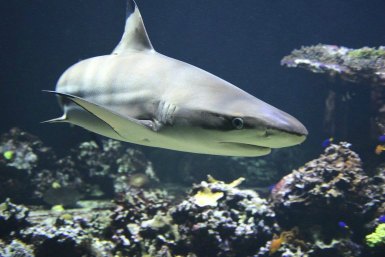
"For as long as I can remember I have wanted to dive with sharks. As a kid, I watched Shark Week religiously every year and dreamed about when I might get a chance. 15 years later I got that chance.
I knew shark cage diving was controversial, but I thought there must be a way to do it without harming the sharks and actually giving back. I began researching and found the White Shark Project in Kleinbaai, South Africa.
The program takes out daily guests and runs a volunteer program that works directly with the South African Shark Conservancy.
As a daily guest, they take you out to view the great white sharks in a cage and teach you a little more about the sharks and why they are important.
As a volunteer, I would help out on the boat handing out wetsuits, loading the cage, running the chum line, and taking data on the sharks. The program also took the volunteers to a couple of lectures about marine conservation and to the South African Shark Conservancy headquarters.
I spent 2 weeks with WSP and learned so much! I was able to view these magnificent fish and really understand what they are like. Sharks are not the terrible man eaters the media has told us about. They are a vital part of our oceanic system. Sharks are the regulators, and if they go, the balance of our oceans goes with them."
- Sadie Redinger, Eclectic Trekker
Many tour operators design their trips with an eye toward sustainability and animal welfare. Stride is here to help you make the most informed choice possible when looking for the perfect trip for you.
Inspired? Check out all Eco Friendly and Sustainable tours available on Stride, from a diverse group of operators that take responsible travel seriously.
Want to help? Consider donating to one of the following charities:
World Animal Protection - recommended by Ellie Cleary, Soul Travel Blog
If you want to learn more, Travel for Wildlife is another expert blog recommended by Kathryn Burrington, Travel With Kat.
The views of the bloggers are their own and do not represent that of Travelstride. Some comments have been edited for length and clarity.

